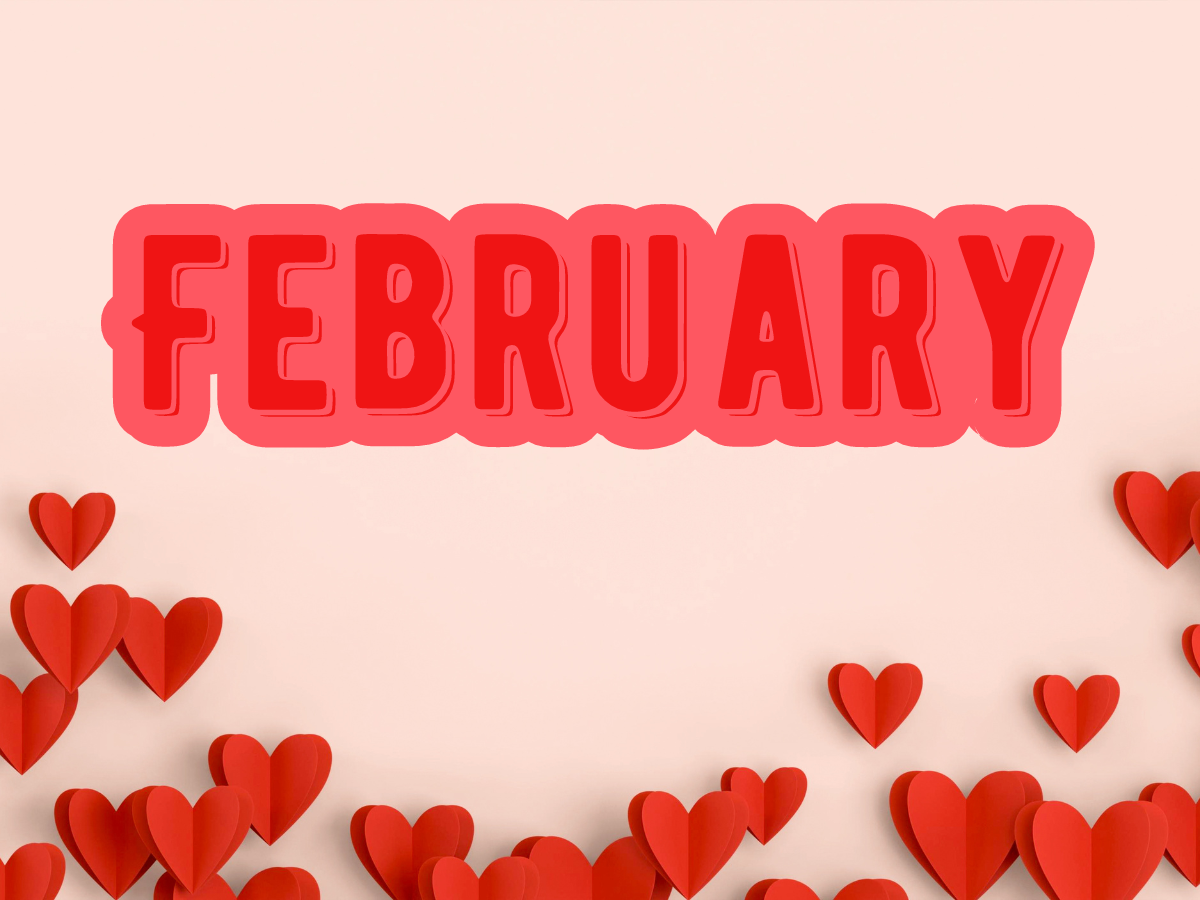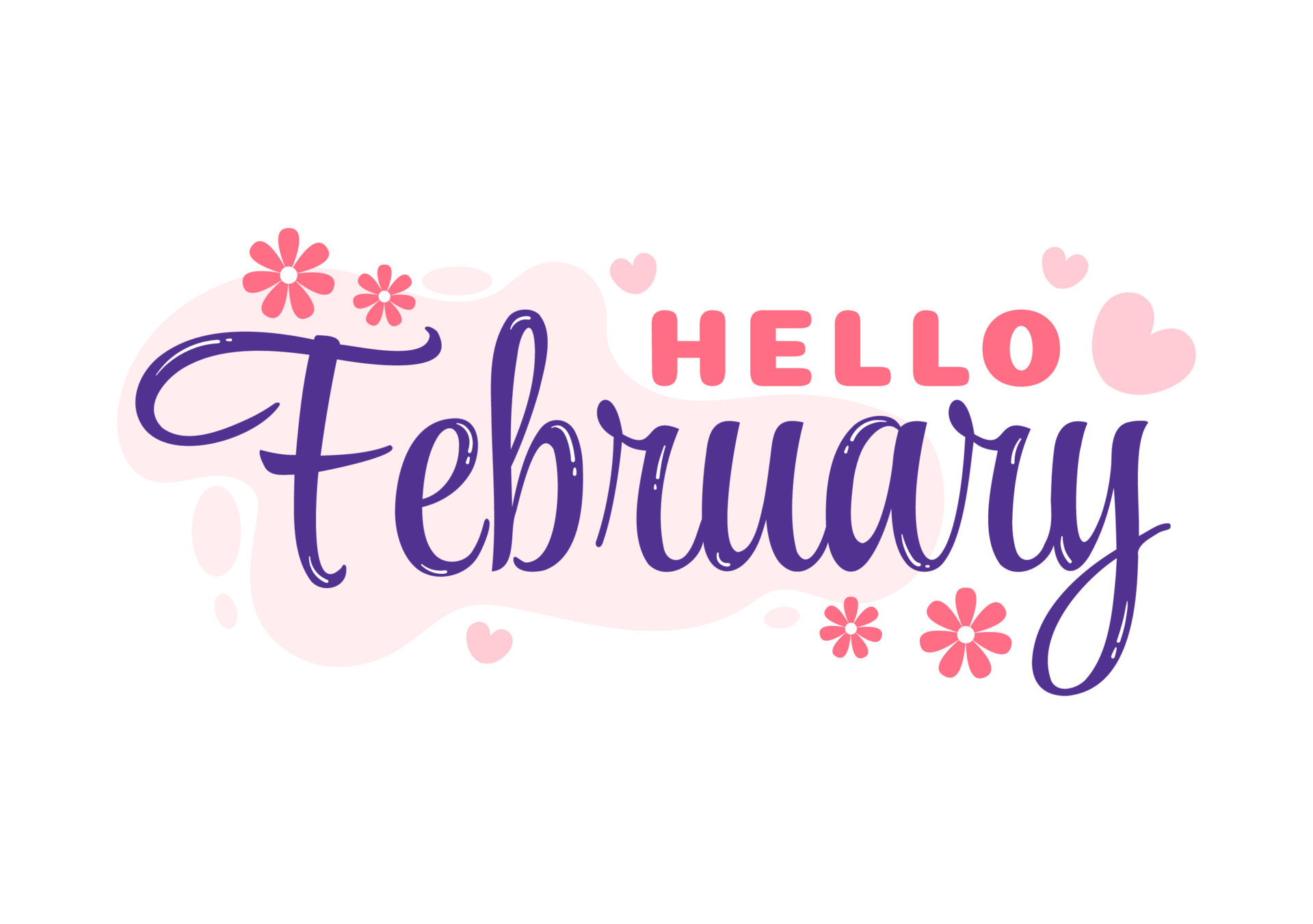February 14: A Day Packed With History And Heart
February 14, a date that probably brings to mind hearts and flowers for many, is actually a day with a surprisingly deep and varied past. It's, you know, the 45th day of the year in the Gregorian calendar, which means there are quite a lot of days, like, 320, remaining until the year wraps up. If it's a leap year, you'll find there are 321 days still to go. This particular day, while widely known for celebrating love and friendship, also holds a spot for some truly significant moments in history, moments that have shaped our world in very real ways.
It's interesting to consider how one single date can carry so much weight, isn't it? Most countries, as you might guess, observe it as Valentine's Day. People typically exchange cards, flowers, and candy, sharing feelings of affection. But beyond these sweet traditions, this day has seen events that are far from romantic, some quite dramatic, in fact. It's a bit like looking at a coin with two very different sides, you know, both part of the same whole.
So, we're going to take a look at what makes February 14 more than just a day for sweet gestures. We'll explore some of the notable historical happenings, the kind of things that, you know, really stick with you. From explorers meeting their end to important cultural announcements, this day has, in a way, seen it all. It’s a good chance to understand the many layers of a date we might otherwise just associate with one single thing.
Table of Contents
- The Calendar Spot: Where February 14 Sits
- Valentine's Day: Its Murky Beginnings
- A Fatal Pacific Encounter: Captain Cook's Last Day
- A Controversial Decree: The Salman Rushdie Fatwa
- Other Historical Happenings on February 14
- February 14 in American History
- What Happened on This Day in History?
- Modern-Day February Considerations
- Frequently Asked Questions About February 14
The Calendar Spot: Where February 14 Sits
February 14, as we just mentioned, is the 45th day of the year on the standard calendar we use, which is called the Gregorian calendar. That means, you know, a good chunk of the year is still ahead. You’ve got 320 days left until the year is done, or if it’s one of those years with an extra day in February, it’s 321 days. It's, like, quite a specific marker, isn't it?
This particular placement in the year means it falls right in the middle of winter for many parts of the world, yet it’s a day often associated with spring themes, especially with Valentine’s Day. It’s a subtle reminder that even in the colder months, there are signs of renewal and connection, which is pretty neat.
Valentine's Day: Its Murky Beginnings
So, most people around the world, you know, see February 14 as Valentine's Day. It’s a time when people celebrate love and friendship. Folks do things like exchanging cards, giving flowers, and sharing candy. It’s a pretty common way for Americans, for example, to show their affection, and it happens in many other places too.
The story of how Valentine’s Day started, though, is a bit unclear. It’s, like, not totally straightforward. There are some ideas that point to ancient Roman times. The Romans, they had this spring festival, you know, called the Feast of Lupercalia. They celebrated it on the fifteenth of February. So, it's possible that some of those older traditions, in a way, eventually mixed with other ideas to become the Valentine's Day we know today. It’s a pretty interesting thought, how traditions can change over time.
A Fatal Pacific Encounter: Captain Cook's Last Day
On February 14, back in 1779, a very important event happened for the great English explorer and navigator, Captain James Cook. It was during his third visit to the Pacific island group, and he was, you know, killed by native Hawaiians. This was a pretty significant moment in the history of exploration and, you know, interactions between different cultures.
Captain Cook was a really famous person for his time, known for his travels and mapping of vast areas of the Pacific Ocean. His expeditions helped people learn a lot about the world. So, his death on this specific day is, like, a very notable historical event, marking the end of a remarkable career. It's a reminder of the risks involved in exploring unknown places and the sometimes difficult encounters that happened when different worlds met.
A Controversial Decree: The Salman Rushdie Fatwa
February 14 also saw a very impactful cultural and political event in more recent history. On this day in 1989, Ayatollah Ruhollah Khomeini of Iran, you know, issued a fatwa. This was a religious decree, and it offered a bounty for the assassination of author Salman Rushdie. His novel, which came out in 1988, called "The Satanic Verses," was, you know, denounced by Khomeini as blasphemous.
This event caused a huge international stir. It brought up very serious discussions about freedom of speech, religious belief, and international relations. It was, like, a moment that really highlighted the differences in how various cultures view certain things. This particular event on February 14, it really shows how a single day can be tied to major global discussions that, you know, still echo today.
Other Historical Happenings on February 14
Beyond these well-known events, February 14 has, you know, witnessed many other interesting and notable occurrences throughout history. It's a day that has seen various things unfold, from scientific advancements to important social shifts. Looking at what happened on this day in history, you can, like, get a glimpse into moments that have, in a way, significantly influenced our world.
For instance, you might find details about who was born on this date, or who passed away. It’s a good way to see how life and death, you know, play out on the same calendar spot over different years. This article, in a way, highlights these notable historical events that occurred on February 14th, giving a broader picture of its significance.
From groundbreaking scientific achievements that, you know, pushed human understanding forward, to critical cultural and political milestones that changed societies, each event, in its own way, helps us build our understanding of the past. It's pretty cool to think about how many different threads of history come together on just one day.
February 14 in American History
February 14 is also a date that has, you know, seen numerous significant events throughout American history. These happenings range from the establishment of important institutions to pivotal moments in social and political history. It's, like, a day that holds a lot of weight for the United States, too.
This article, you know, aims to explore some of the most notable occurrences on this day within American history. It could be about something as foundational as setting up a new organization, or something as impactful as a major turning point in how society functions. Each of these events, you know, helps paint a fuller picture of the country’s development and challenges. It's a good way to appreciate the depth of history tied to this particular date.
What Happened on This Day in History?
So, what exactly happened on this day in history, February 14? It’s a question that, you know, opens up a lot of interesting avenues. You can see what historical events occurred, which famous people were born, and who passed away on February 14. It’s, like, a way to connect with the past on a very personal level, sometimes.
You might find, for example, information about the publishing world. There are discussions, you know, about things like how academic papers are structured, with mentions of "volume" and "issue" numbers. This can seem a bit technical, but it’s part of how information is organized. For instance, a reference might look like "2008, 92 (3): 28-29, 34" which means the year 2008, volume 92, issue 3, pages 28-29 and 34. Or, if there’s no volume number, it might be "2008, (3): 28-29, 34". It's pretty specific, you know, how these things are noted.
These details about how journals are structured, you know, like what a "volume number" is versus an "issue number," are pretty important for people in academic fields. A volume number typically goes by the year, starting from when the journal began. An issue number, though, goes by the publication cycle, like if it’s a monthly magazine. So, knowing how to look these up, you know, is a useful skill for anyone working with research papers. It's all part of understanding how information is cataloged.
Modern-Day February Considerations
February, and especially February 14, still brings up a lot of contemporary topics and discussions. For instance, in the world of academic publishing, there are ongoing conversations about things like "ACL 2025 / February ARR cycle results." This refers to academic conferences and their review cycles, which are, you know, a big deal for researchers. When results come out for something like the "ARR" (which stands for something like "Annual Review Round"), it's a moment of great anticipation for many people. It’s, like, a very current example of how February is significant beyond just holidays.
Then there are things like online communities discussing specific interests. You might find, you know, people talking about "the latest The Pirate Bay proxies list," which is something, you know, curated from various online groups. Before doing things like torrenting, people are often advised to stay connected to a VPN for security. There are recommendations for top VPNs from community members, too. This shows how, you know, digital safety and online access are pretty big topics that people discuss.
Even in the world of gaming, February can be a time for specific challenges. Someone might be trying to complete a "February stakes race" in a game, for example, and even with the best stats, they might be struggling. It’s, like, a pretty common experience in games where you try your best but sometimes things don’t go as planned. This shows how, you know, the date can also frame personal challenges and goals.
There are also specific programs that run until the end of February, like "AMC’s Screen Unseen program" or discussions about "Regal’s" similar offerings. These are, you know, pretty popular for movie lovers. And for those looking to pursue law, February can be a key month for studying for the "LSAT" (Law School Admission Test). There are online communities, you know, dedicated to giving advice for this test, which is required for law school. It’s, like, a really important step for many people’s futures.
Frequently Asked Questions About February 14
What is February 14 known for?
February 14 is, you know, widely known as Valentine's Day in most countries. It’s a day when people celebrate love and friendship, often by exchanging cards, flowers, and candy. Beyond that, it's also, like, a date that has seen many significant historical events, both globally and within American history, from explorations to cultural milestones.
What historical events happened on February 14?
On February 14, 1779, Captain James Cook, the famous English explorer, was, you know, killed by native Hawaiians during his third visit to the Pacific island group. Also, on February 14, 1989, Ayatollah Ruhollah Khomeini of Iran issued a fatwa, offering a bounty for the assassination of author Salman Rushdie, whose novel "The Satanic Verses" was, you know, denounced as blasphemous. These are just a couple of the very notable happenings.
What are the origins of Valentine's Day?
The origins of Valentine's Day are, you know, a bit unclear. It’s not a straightforward story. Some ideas suggest connections to ancient Roman traditions, like the Feast of Lupercalia, which was, you know, a spring festival celebrated on the fifteenth of February. Over time, these older customs might have, in a way, blended with other influences to form the Valentine's Day we recognize today.
So, as you can see, February 14 really is a day packed with stories. It’s not just about one thing, but, you know, a collection of moments that have shaped our world in different ways. We hope this little look back helps you appreciate its many sides, from historical events to the simple joy of celebrating connection. Maybe you'll want to explore more about these moments. Learn more about on our site, and link to this page .

Why does February have fewer days than other months?

Sweet & Simple "Hello, February" Free Art to Print | This is our Bliss

Hello February Month with Flowers, Hearts, Leaves and Cute Lettering